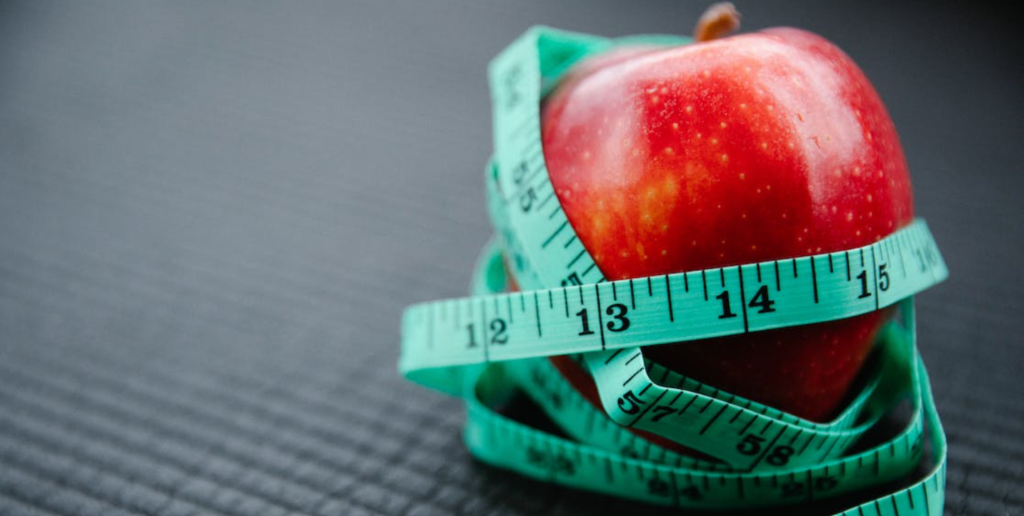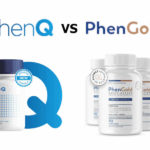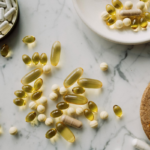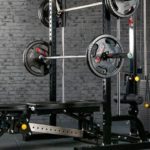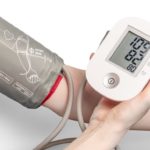Introduction
Weight loss is a popular topic for many, but have you ever considered the connection between shedding those extra pounds and improving your cholesterol levels? Surprisingly, losing weight can indeed make a positive impact on your cholesterol, which in turn may help reduce your risk of cardiovascular diseases.
In this blog post, we’ll explore the intricate relationship between weight loss and cholesterol management while providing practical tips to help you achieve both goals.
Key Takeaways
- Losing weight can have a positive impact by reducing LDL cholesterol and promoting HDL cholesterol what are these? Read on!
- Even modest weight loss, between 5% and 10% of one’s total body weight, could yield substantial benefits when it comes to maintaining healthy cholesterol levels.
- Strategies for improving cholesterol through weight loss include focusing on losing moderate amounts of weight, incorporating heart-healthy foods into your diet, cutting back on saturated and trans fats, getting regular exercise, and quitting smoking.
- Managing stress levels is crucial for weight loss and cholesterol management as excess stress can lead to overeating unhealthy food choices that hinder progress towards achieving improved cardiovascular health.
The Relationship Between Weight Loss And Cholesterol Levels
Losing weight can have a significant impact on cholesterol management, as shedding those extra pounds may lead to improvements in overall cardiovascular health. One reason for this is that a decrease in body fat can contribute to lower levels of LDL cholesterol – the “bad” cholesterol responsible for plaque buildup in arteries.
It’s interesting to note that high cholesterol can sometimes make it difficult for individuals to lose weight, creating a vicious cycle that must be broken with diligent effort and determination.

One study found that even modest weight loss – between 5% and 10% of one’s total body weight – could yield substantial benefits when it comes to maintaining healthy levels.
This means that if you weigh 200 pounds and manage to safely lose just 20 pounds over time, you might begin reaping the rewards of improved cardiovascular well-being while slimming down at the same time.
The Impact Of Weight Loss On Cholesterol Levels
Studies have shown that even small-to-moderate weight loss can help lower LDL cholesterol and triglycerides while increasing HDL cholesterol, the good kind of cholesterol.
In fact, losing as little as 10 pounds can improve cholesterol levels and reduce the risk of certain conditions like heart disease. Making lifestyle changes such as adopting a healthy diet plan low in saturated fat, increasing physical activity, and managing stress levels can all support weight loss efforts and lead to improved cholesterol management.
Strategies For Improving Cholesterol Through Weight Loss
- Focus on losing a moderate amount of weight: Losing as little as 5-10% of your body weight may lower your total cholesterol levels significantly.
- Incorporate heart-healthy foods into your diet: Foods like fruits, vegetables, whole grains, and lean protein can help improve cholesterol levels when included in a balanced diet.
- Cut back on saturated and trans fats: These types of fats can increase LDL cholesterol levels (the bad stuff!). Instead, opt for healthier fats like monounsaturated or polyunsaturated fats found in nuts, seeds, and avocados.
- Get moving: Regular exercise can help you lose weight and improve cholesterol levels. Aim for at least 30 minutes of moderate-intensity exercise most days of the week.
- Quit smoking: Smoking can contribute to high LDL cholesterol levels and poor cardiovascular health. Talk to your healthcare provider about resources to quit smoking.
Remember that lifestyle changes take time and consistency to see results. It’s important to work with your healthcare provider to develop a plan that’s right for you and monitor your progress through regular testing.
Tips For Weight Loss And Cholesterol Management
Adopt a healthy diet plan including foods low in saturated fat and high in fiber such as fruits, vegetables, whole grains, lean protein sources like fish or poultry, and healthy fats found in nuts and seeds.
Increase physical activity by engaging in regular exercise at least 30 minutes a day most days of the week.
Adopting A Healthy Diet Plan To Support Weight Loss And Cholesterol Management
Maintaining a healthy diet plan is crucial for both weight loss and cholesterol management. Here are some tips to help you achieve both goals:
- Reduce your intake of foods that are high in saturated and trans fats such as red meat, butter, cheese, and fried foods.
- Increase your intake of foods that are high in fiber, such as fruits, vegetables, whole grains, nuts, and seeds.
- Choose lean protein sources such as fish, chicken breast, and plant-based options like beans and lentils.
- Avoid or limit processed foods and sugary drinks.
- Use healthy cooking methods such as grilling, roasting or steaming instead of frying.
- Incorporate heart – healthy fats in your diet like olive oil, avocadoes, nuts and seeds.
By adopting these dietary changes, you can reduce cholesterol levels and enhance overall cardiovascular health whilst also aiding weight loss.
Increasing Physical Activity For Better Cholesterol Management
Regular exercise is a great way to improve your cholesterol levels and overall heart health. Here are some tips for incorporating more physical activity into your routine:
- Start small: If you’re not used to exercising, start with just a few minutes of activity each day and gradually increase the duration over time.
- Find something you enjoy: Whether it’s dancing, hiking, or swimming, find an activity that you enjoy doing so that it doesn’t feel like a chore.
- Incorporate movement into your daily routine: Take the stairs instead of the elevator, walk or bike to work if possible, or take a brisk walk during your lunch break.
- Aim for at least 30 minutes of moderate – intensity activity most days of the week. This could include activities like brisk walking, jogging, or cycling.
- Consider strength training: Strength training can help build muscle and increase metabolism, which can in turn help improve cholesterol levels.
Remember that every little bit counts when it comes to exercise and cholesterol management. So even if you can only fit in a few minutes of activity here and there throughout the day, it’s still better than nothing!
Managing Stress Levels To Support Weight Loss And Cholesterol Management
Managing stress levels is crucial for weight loss and cholesterol management. Stress can lead to overeating, unhealthy food choices, and a lack of motivation to exercise. Here are some strategies for managing stress:
- Prioritize self-care: This can include activities such as meditation, yoga, or spending time with loved ones.
- Make time for physical activity: Exercise is a great way to reduce stress while also promoting weight loss and cholesterol management.
- Get enough sleep: Lack of sleep can increase stress levels and make it harder to lose weight. Aim for 7-8 hours of sleep each night.
- Practice mindful eating: When stressed, it’s common to turn to food for comfort. Instead, focus on eating slowly and savoring each bite.
- Seek professional help if needed: If stress is overwhelming and interfering with weight loss goals, consider seeking support from a therapist or counselor.
Remember that managing stress is just one piece of the puzzle. A healthy diet plan, regular exercise, and monitoring cholesterol levels are also important factors in achieving optimal health.

Understanding The Connection Between Body Fat And Cholesterol
Body fat plays a significant role in the production of cholesterol, and reducing body fat can lead to improvements in cholesterol levels.
The Role Of Body Fat In Cholesterol Production
When we consume foods high in saturated fats, our liver produces more LDL cholesterol than what our body needs.
This excess LDL cholesterol sticks to the walls of arteries and can lead to heart disease.
Reducing body fat by adopting healthy lifestyle changes such as eating nutrient-dense foods and getting regular exercise is key to managing cholesterol levels effectively.
Strategies For Reducing Body Fat And Improving Cholesterol
Here are some strategies that have proven effective:
- Adopt a healthy diet plan: A diet rich in fruits, vegetables, whole grains, lean proteins, and low-fat dairy products can help you lose weight and lower cholesterol levels. Avoid saturated fats and trans fats which raise LDL cholesterol levels.
- Exercise regularly: Exercise not only helps burn calories but also boosts HDL (good) cholesterol levels. Aim for at least 150 minutes of moderate-intensity aerobic activity per week.
- Try strength training: Strength training tones your muscles while increasing your metabolism, helping you burn more calories throughout the day. Check out some of the best home gym setups if you’d like to try improving your strength chez vous!
- Manage stress levels: High-stress levels can lead to overeating or unhealthy food choices. Incorporating stress-reducing activities such as yoga or meditation may help improve cholesterol levels.
- Reduce alcohol intake: Excessive alcohol consumption raises triglyceride levels, a type of blood lipid linked to heart disease. Limit yourself to one drink per day for women and two drinks per day for men.
- Increase fiber intake: Soluble fiber found in oats, barley, legumes and certain fruits & vegetables can bind with bile acids in the digestive system which reduces LDL (bad) cholesterol reuptake by the body.

By following these strategies, you can effectively reduce body fat and improve your cholesterol levels – ultimately improving your overall cardiovascular health.
The Importance Of Regular Monitoring
Regular monitoring of your cholesterol levels and weight loss progress is crucial for staying on track towards achieving a healthier lifestyle. By tracking these changes, you can see the positive impacts of your efforts and make any necessary adjustments to reach your health goals.
Regular Cholesterol Testing To Track Progress
One of the most important things you can do while trying to improve your cholesterol levels is to get regular testing done. Getting tested regularly will help you track your progress and give you a clear idea of how effective your diet and exercise routine are. Here are a few reasons why regular testing is so important:
- It helps you stay on track: By getting tested at regular intervals, you can see if your lifestyle changes are making an impact or not. This knowledge can be motivating, helping you stay on course.
- It can catch potential issues early: High cholesterol levels can increase your risk for heart disease and stroke. Regular testing can help identify any problems early on, giving you time to make adjustments before they become more serious.
- It allows you to adjust your treatment plan if needed: If your test results aren’t improving as quickly as you’d like, it may be time to re-evaluate what you’re doing and make some changes. Knowing where you stand is crucial in helping determine the best course of action.
How often to get a cholesterol test
According to the Centers for Disease Control and Prevention (CDC), everyone over the age of 20 should get their cholesterol tested at least once every five years. However, if you have already been diagnosed with high cholesterol, or have other cardiovascular risk factors such as high blood pressure or diabetes, your doctor may recommend more frequent testing.
In addition to monitoring cholesterol levels through lab tests, there are also tools available that allow dieters to monitor their weight loss progress from home. These include body fat scales and wearable fitness trackers that can measure steps taken, distance traveled, and calories burned during exercise.
Overall, regular cholesterol testing is an essential part of managing both weight loss and cardiovascular health. By staying informed about your numbers and making changes as needed in response to test results, dieters can greatly improve their chances for success in achieving their health goals.
Tools To Monitor Weight Loss Progress
As a dieter, tracking your weight loss progress can be an effective way to stay motivated and make necessary adjustments to your lifestyle. Here are some tools you can use to monitor your weight loss progress:
- Bathroom Scale: Regularly weighing yourself can help you keep track of your progress and adjust your diet and exercise routine accordingly.
- Measuring Tape: Measuring different parts of your body like waist, hips, and arms is a great way to keep track of inches lost and celebrate small milestones.
- Body Fat Analyzer: A body fat analyzer uses bioelectrical impedance to measure body fat percentage and provides a more accurate picture of overall health beyond just weight loss.
- Food Diary: Keeping a food diary is an excellent way to monitor calorie intake and ensure that you are sticking to a healthy diet plan.
- Fitness Tracker: Using a fitness tracker like Fitbit or Apple Watch can help you set daily activity goals, monitor heart rate, and track calorie burn during workouts.
Remember that monitoring your weight loss progress should not be the only reason for adopting healthy lifestyle changes – improving cholesterol levels and overall cardiovascular health should be the ultimate goal. With dedication and commitment, using these tools can help you achieve both.
The Benefits Of Tracking Cholesterol Levels And Weight Loss
Tracking your cholesterol levels and weight loss can provide many benefits. It helps to keep you motivated and on track with your diet and exercise goals.
Additionally, tracking progress allows for adjustments to be made to the diet plan or exercise regimen if needed. If initial efforts have not been successful in lowering cholesterol levels, then a change in strategy may be necessary.
Conclusion
In conclusion, weight loss has a significant impact on cholesterol levels and can improve cardiovascular health. By adopting healthy lifestyle changes such as eating a healthy diet plan, increasing physical activity, managing stress levels and reducing body fat, you can achieve sustainable weight loss while improving your cholesterol profile.
Regular monitoring of both your weight and cholesterol levels is important to track progress towards achieving better overall health.
FAQs:
- How does weight loss affect cholesterol levels?
Weight loss can have a positive impact on cholesterol levels by reducing the amount of LDL, or “bad” cholesterol, in the bloodstream and increasing HDL, or “good” cholesterol. This is because excess body fat can contribute to higher levels of LDL and lower levels of HDL.
- How much weight loss is needed to see changes in cholesterol?
Even modest amounts of weight loss – 5% to 10% of your starting weight – can lead to improvements in blood lipid levels including total cholesterol and triglycerides.
- Is exercise necessary for improving cholesterol through weight loss?
While regular physical activity provides numerous benefits for overall health, it may not be required solely for improving one’s lipid profile through weight reduction alone. However, combining exercise with dietary changes may result in even greater improvements than either strategy alone.
- Can medications help improve high cholesterol caused by obesity?
There are a variety of prescription drugs available that can help lower elevated blood lipids related to obesity such as statins or fibrates which reduce the production or absorption of fatty substances within the liver; however lifestyle modifications including increased physical activity and improved diet choices should always be considered when treating abnormal lipid profiles before resorting primarily towards medication use due its potential side effects on other organs/systems over time if taken long term without proper monitoring from medical professionals as well as cost implications associated with ongoing prescription drug therapy management.’
